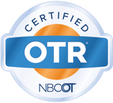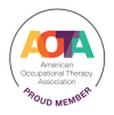|
Thank you for your interest! At this time, there is no set schedule for posts, as I like to consider things deeply before sharing. It's important to me to be visible but not add to the "noise" of the internet, and my hope is that these writings are beneficial to myself and others in some way. Please sign up for our newsletter or follow us on Instagram to receive new posts. Please note that email (including this form and the newsletter) are not secure forms of communication, and the privacy of your email address and PHI cannot be guaranteed. If you choose to share your email via this form, you are consenting to the associated privacy risks. Medical Disclaimer
All information on this website and blog is intended for instruction and informational purposes only. The authors are not responsible for any harm or injury that may result. Significant injury risk is possible if you do not follow due diligence and seek suitable professional advice about your particular situation, condition, or injury. No guarantees of specific results are expressly made or implied on this website.
0 Comments
A few months back, the time had finally come as it does for most of us. Reading glasses. So, I dutifully had them made and was quite disappointed when they didn’t seem to do anything. At all. Rather than taking them back to the shop, I assumed that maybe they were supposed to be that subtle, as I tried to trick my mind into thinking they were helping an itty bitty bit. Or, perhaps, my eyes had worsened dramatically since the eye exam. Thinking that maybe it was the latter, I finally went back to the optometrist months later. Turns out, they were mistakenly made to be distance glasses and not readers! I was floored. A mistake from an outside source had not even crossed my mind.
Internal locus of control (coined by Julian B Rotter), self-reliant strategy (Hakomi), self-preservation instinct (Enneagram) are all ideas that point to the phenomenon that I experienced, and I’m sure there are many other descriptions. Does everyone do this? No. There are just as many terms for doing the opposite. And, some people do both simultaneously in different areas of their lives or bounce between them. Why am I bringing this up? I have found that people I work with have often tried to ignore their needs or felt like they had to fulfill them solo for a long time before reaching out for help. Just like I did! There’s a reason that people with chronic conditions and dancers are my chosen clientele. I knew a dancer who broke her foot while on break from a ballet company and returned to 40+ hours/week of dancing before it had healed fully. She didn’t even tell the artistic director for fear she’d lose her job, and, in that company, she likely would have. True story! Dancers endure and endure pain and discomfort (physically and emotionally) all the while hiding it from audiences and bosses. (And, yes, there is joy and transcendence, too! But that’s not what we’re talking about here today.) And, I knew a gentleman with a neurological condition who spent years avoiding using a mobility device because he didn’t want to appear ill. When he finally decided to give it a go, his life expanded! He was delighted by all the things he could now do that were off-limits before due to his difficulty walking. Rather than feeling incapable from having to rely on a device, he felt more capable and alive than he had in years. Is self-reliance all bad? Goodness, no! It can create amazing self-efficacy, resilience, and ability to accomplish what one sets out to do. The great part is that all those good aspects aren’t going anywhere. You can receive the help you need and still call upon that scrappy tenacity when you need it. In the meantime, however, you can feel supported and expand the possibilities in your life. That's worth investing in. For self-reflection, ask yourself how my enduring might be increasing my pain, my stress, or my inability to do the things that I love. Taking everything on yourself can create a certain rigidity through tension in the literal tissue of the body and emotional stress. Both increase discomfort, and also limit full access to strength. Quite literally, true muscular strength comes from a place of being able to let go fully in order to contract fully. A muscle exhausted from constantly holding on is a weaker muscle. By learning to let go and accept help (with discernment!), we can learn to fully rest into something other than our own will-power. While I completely forgot these lessons in relation to my reading glasses (ha ha), I have learned over time that I have a lot more to offer others when I receive the support I need through therapeutic work, friends/family, and artistic pursuits. At Ease Therapy and Movement, I am honored to hold space for the self-reliant to feel supported and more at ease in their lives (and the not-so-self-reliant, too ;) If this interests you, I’d love to chat: www.JamienRose.com |
Jamien RoseEase Therapy and Movement Archives |
Ease THERAPY and movementVoice 206-607-9425 Fax 206-326-1159
|
With gratitude to Alex Strazzanti for his incredible support in creating this website. www.Strazzanti-photography.com
For OT Services: Ease is a private pay practice and has no relationship with any third party payor (Medicare, Medicaid, private insurance, LNI, etc.). This means that payment is made directly between the client and Ease, and billing/superbills are not available. Clients may contact their HRA/HSA/FSA directly to see if they cover OT for wellness and prevention. If you are experiencing financial hardship, please inquire about availability for sliding fee sessions. We look forward to being a part of your health, well-being, and prevention journey!
Medical Disclaimer
All information on this website and blog is intended for instruction and informational purposes only. The authors are not responsible for any harm or injury that may result. Significant injury risk is possible if you do not follow due diligence and seek suitable professional advice about your particular situation, condition, or injury. Information on this website is not a substitute for professional occupational therapy services. No guarantees of specific results are expressly made or implied on this website.
GYROTONIC®, GYROTONIC EXPANSION SYSTEM® and GYROKINESIS® are registered trademarks of Gyrotonic Sales Corp & are used with permission.
For OT Services: Ease is a private pay practice and has no relationship with any third party payor (Medicare, Medicaid, private insurance, LNI, etc.). This means that payment is made directly between the client and Ease, and billing/superbills are not available. Clients may contact their HRA/HSA/FSA directly to see if they cover OT for wellness and prevention. If you are experiencing financial hardship, please inquire about availability for sliding fee sessions. We look forward to being a part of your health, well-being, and prevention journey!
Medical Disclaimer
All information on this website and blog is intended for instruction and informational purposes only. The authors are not responsible for any harm or injury that may result. Significant injury risk is possible if you do not follow due diligence and seek suitable professional advice about your particular situation, condition, or injury. Information on this website is not a substitute for professional occupational therapy services. No guarantees of specific results are expressly made or implied on this website.
GYROTONIC®, GYROTONIC EXPANSION SYSTEM® and GYROKINESIS® are registered trademarks of Gyrotonic Sales Corp & are used with permission.

